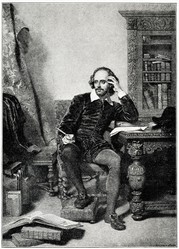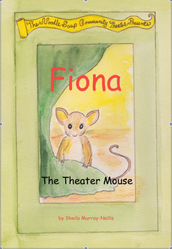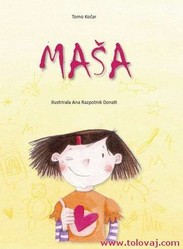The Catholic Herald recently published a book review of Dictator Literature by Daniel Kalder, which spoke of "..the tedium and horror of dictators' prose. The review by Ed West speaks of Lenin's aggressively tedious prose that was full of hatred and bitterness. West points out that Stalin fared a little better, having some natural talent, but that Mussolini was a goodish journalist, but no fiction writer. But it also claims that Mussolini was an obsessive anti-theist, firing rhetorical firecrackers at a series of straw men, which shows that is work did not rise above the level of mere propaganda. The book reserves its most critical language for the arch-monster Hitler, whose combination of an ignorant mind and a monstrous ego gave us the appallingly bad Mein Kampf, the work of one too arrogant to acquire either literary skill or wisdom.
What can we learn from Dictator Literature? Kalder wants to map the devastating wastelands of the human spirit while exploring the terrible things that happen when you put writers in charge. While there is some truth in the concern that no single occupation group can be trusted with ultimate power,mention of Czechoslovakia's president Vaclav Havel is a useful counter-example to Kalder's pessimistic claim, for Havel was a writer who turned into a successful and respected president. But the devastating wastelands of the human spirit that were expressed as these dictators' policies were the source of these dictators' turgid and generally unattractive writings.writing. Ugly policies came from ugly ideas, which were reflected in ugly prose, but the reality was worse than the literature. Mein Kampf was bad, but it would be worse to meet the SS in the flesh; and having once met a man who had seen and listened to Hitler, I was assured that it was not a pleasant experience, which led the man to get away as fast possible.
The key idea is that what we write is the expression of our minds. It is our individuality in words. We express ourselves in what we write. So the first step in good writing is that we should begin with our own minds, cultivating them and being determined to improve them. Without cultivation of the inner life of the mind no one can be a good writer, and it is a lifelong process. Within our own minds we must endeavour to realize the True, the Good and the Beautiful good qualities that these tyrants did not make real in their lives, quite the opposite in fact.
All writers must strive to express in words the great trinity of values: the True, the Good and the Beautiful. We might do this in a simple way by writing about interesting recipes,but we might be profound in our analysis of the gospels, but as long as we realize through our writing in some limited way these three values we are on the right path, for we are giving readers' sparkles from the sun of truth, goodness and beauty.
Catholic Herald July 26th 2018,Ed West.







 TheThousand Year Gardenon 11/26/2025
TheThousand Year Gardenon 11/26/2025
 Women of the Gospelson 10/11/2025
Women of the Gospelson 10/11/2025
 Religious Gardenson 08/25/2025
Religious Gardenson 08/25/2025
 Doctor of the Church: John Henry Newmanon 08/03/2025
Doctor of the Church: John Henry Newmanon 08/03/2025




Comments
I do not know, but I hope that they had fun.
Thank you!
It's interesting that the audience and the delivery enter into it.
It makes me think of Brian May and Stephen Hawking doing all that publishing that made astronomy and cosmology less professional-jargoned and more household-worded.
(Might Dr. Hawking and Dr. May as six-year-olds have put space-fighter leadership ahead of classroom pencil-monitoring ;-D?)
Very similar, but strangely academic skiĺs alone are not enough. You need a feel for what readers will enjoy and a feel for beautiful language.
Thank you!
A doctorate in religious education and a position as lecturer involve a lot of mentoring, publishing -- "publish or perish" among Unitedstatesian four-year-, four-year-plus university staff -- and teaching on the western side of the Atlantic pond.
Is that the same east-pond-ward?
Lecturer.
A doctorate in Religious Education merits a respected professorship in private and public colleges and universities on this, western-pond side.
What would have been the occupational range for you as Religious Education Ph.D.-holder? And which opportunity would you have chosen?
My Ph.D would have been in Religious Education.
frankbeswick, Thank you for the practical information, the product lines and the nourishingly beautiful, good, true tips.
It's interesting that you bring up Vaclav Havel, a fine writer whom President Kennedy perhaps would have been pleased to see heading the presidency of Czechoslovakia (1989-1992) and then of the Czech Republic (1993-2003). President Kennedy once suggested a finer world with poets as presidents and in politics.
What would your Ph.D. have been in?
When I was twenty two my tutor told me that my style was wooden, so I worked on it. In my late twenties I began to venture into publication, with no success. So at 32 I decided to develop my mind by doing a master's degree. Only afterwards did I reject my tutor's willingness to put me forward for a Ph.D because I knew that it was time for me to write. Writing has been a long road requiring much commitment, but giving me great happiness. As I grow older [ I am sixty eight ] there are two sides of my life that I will never let retirement sweep away: writing and gardening.
Having begun blogging about 10 years ago, it is where I first began writing anything, and it was pretty bad. I have improved over the years, but I am still lacking in writing skills. It's not my favorite thing to do, but I do want to get better at it. Frank, you are an excellent writer! I always enjoy reading your articles. I've also begun reading novels recently and I do agree that reading is important for expanding ideas and skills. Writing on my piddly blogs is one way I practice.